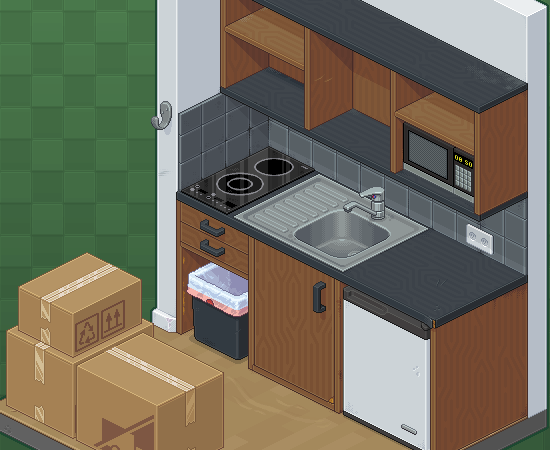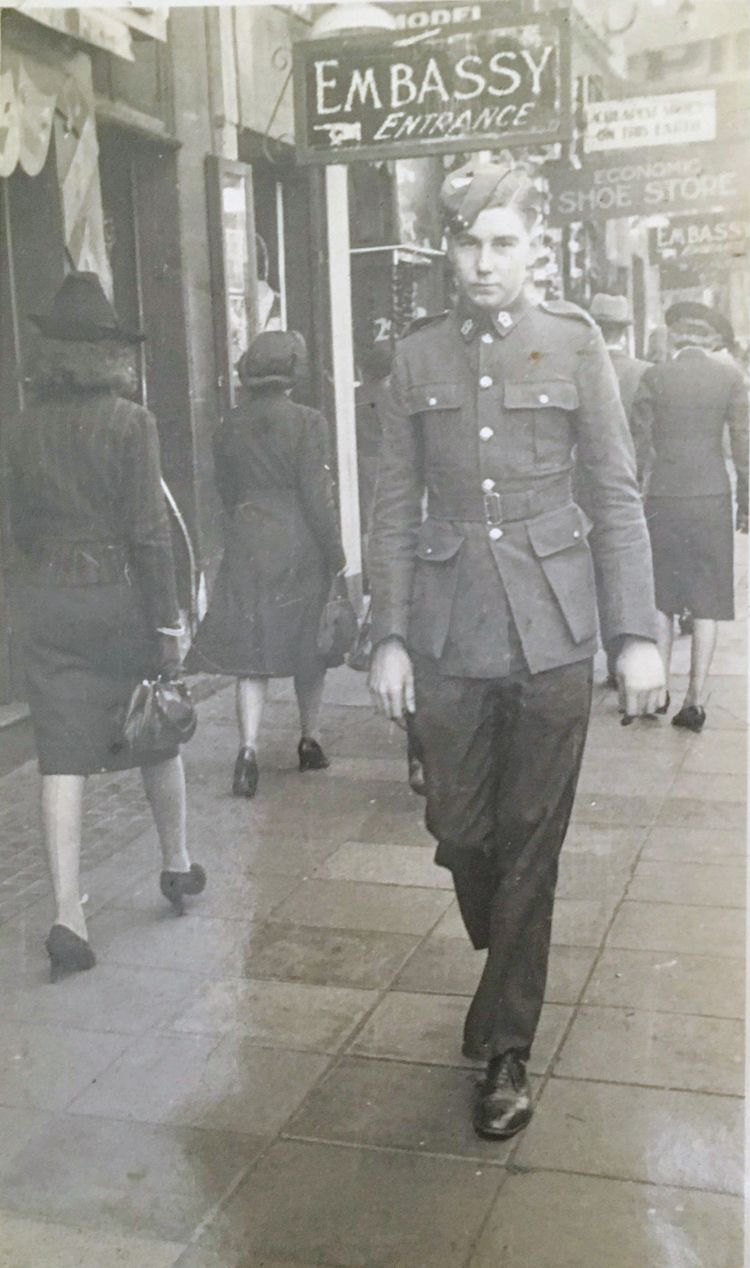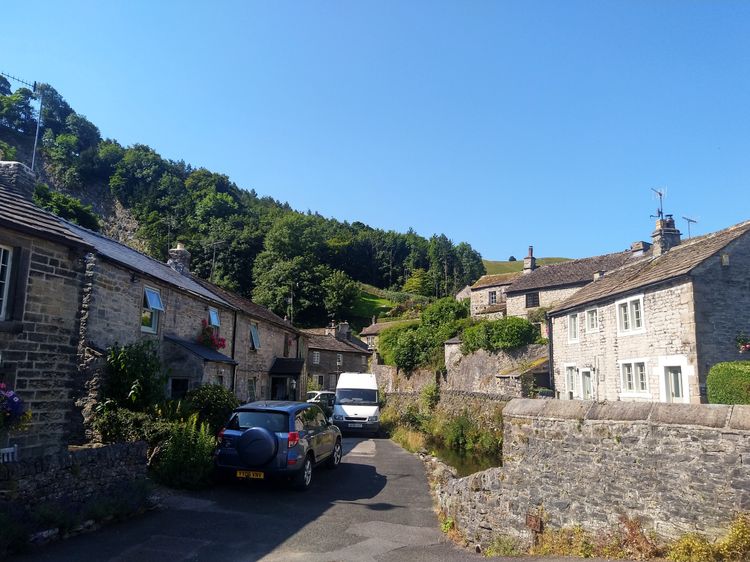Zen and the art of doomscrolling
You!
Yes, you!
Stop reading this, and take 10 deep breaths.
Yes, right now!

PHEW. Feels a little better, doesn't it?
Yeah, so I've been thinking a lot about how to counteract anxiety this week (WHY? OH NO REASON.).
Anxiety is fascinating, because it proves just how effective your brain is at being a virtual reality machine.
Worry is your brain's way of rehearsing for bad things. "But what if there's a fire?!" says your brain. And then you start problem-solving this potential bad thing. You think about where you store your important papers, and try to imagine wrestling your stupid cat into his cat-carrier whilst simultaneously wrapping a wet bandana around your face, and ask yourself whether you'd grab your laptop or your ukulele. You worry because some worry is helpful. It means that you can pre-empt some bad things and make plans for how to solve them before you have to.
But the problem is, your brain is SO GOOD at imagining these bad things that have not actually happened, that your body gets confused. Your body doesn't understand that these bad things are just imaginary. Your brain thinks, "what if fire..." but your body just hears "FIRE!" and responds by preparing itself to RUN FROM FIRE.

But of course, you don't actually go running, because the fire is still imaginary. So you just get more and more wound up, and that makes you more likely to think of all the OTHER bad things that might happen, because your body's yelling EMERGENCY so your brain is going to think EMERGENCY, and it's all a TERRIBLE EMERGENCY CYCLE of stress until you die from hypertension at 35 (but are secretly glad about it because at least dead people are not STRESSED).
A little bit of worry is healthy. Too much worry makes it impossible to get anything done, and ironically, makes you less good at solving problems. I grew up with somebody who had a severe generalised anxiety disorder that manifested as bouts of agoraphobia (fear of public places). Something like going to the shops became impossible, because before we could leave for the shops we had to rehearse and talk through every possible thing that might go wrong. What if there was no parking near the shops? What if something bad happened when we were there and we couldn't get out in time? We'd spend so long planning for every possible awful eventuality that most of the time we just gave up and never went.
That's an extreme case, but ALL of us have times when our worry spins out of control, and becomes unhelpful, and we can't focus on anything except – EHEM –refreshing the news and googling the nuances of the electoral system in Nevada.
So, how do you break this sneaky worry cycle?
One of the most-studied techniques for addressing stress and anxiety is the practice of mindfulness. Mindfulness basically means shutting down the "virtual reality" programme in your brain by bringing your attention back to the present reality around you, and inside you. There are a bunch of different ways you can do this, but most of them are about using your senses to ground you in reality, showing your brain that nothing is actually on fire, right now. The goal is to becoming aware of what's going on in your mind, and in the world around you, moment by moment, without judging any of those impressions or sensations or allowing them to be a springboard into a whole fantasy sequence (good or bad).
Mindfulness doesn’t have to mean sitting cross-legged and making your mind completely blank until you reach enlightenment, either. You can use almost any of your senses as part of a mindfulness practice. You can focus on breathing. You can just stop and look at something carefully (my favourite way to practice mindfulness is by drawing something). You can stretch. You can close your eyes and try to become aware of every sound you can hear. It doesn't have to be very difficult, you just have to actually do it.
When you meditate, your brain will pipe up and start trying to tell you about potential fires, or remind you to buy washing up liquid, or rehearse what would happen if you lost your job. The goal isn't to stop those thoughts, it's to notice them, but then to let them go. Your job is to refuse to be drawn into the whole virtual reality sequence your brain wants to conjure up for you, and keep returning to what's actually happening now.
Zen Buddhists ("Zen" just means "meditation") call this cultivating a beginner's mind. When you look at a tree, you want to get into a whole dialogue with yourself about whether it’s a beech tree or a hornbeam, or think about invasive beetle species, or wonder if you should be taking up a class in woodworking, or remember that you saw a tree just like it a few weeks ago. A beginner's mind just sees the damn tree.

And hey, CAPTAIN SKEPTICAL, this isn't just hippy-dippy-frou-frou nonsense, I promise! There's a mountain of compelling evidence justifying the effectiveness of mindfulness practices at reducing stress. Mindfulness isn't going to cure your cancer, but it might well help to lower your blood pressure, sleep better, and protect your brain from cognitive decline as you age. The most noticeable changes are for SOME people with depression or anxiety disorders. We're learning more all the time about some of the truly wild brain-changes in long-term meditators, from shrinking amygdalas to an increase in gamma waves. It's pretty wild.
Practicing meditation is something you can spend your whole life doing (indeed, doing so forms the heart of several ancient religious practices). But getting started is really easy, and simple. Hey, you've already meditated TODAY, by stopping to take 10 deep breaths!
If you need some help chilling out a bit right now, or are interested in learning more about mindfulness, I'm a huge fan of the app Headspace. It was originally recommended to me by my psychologist, it's science-based and free to get started with (about £10/month after that). If you hate sitting still and would rather stretch while you relax, I'm also loving the yoga app Down Dog, which also gives you a 1 month free trial. If you want to try drawing as meditation, Becky Haysom's Foundations of Observational Drawing online course is magnificent. Or heck, you could just go sit outside and look at the sky for a bit, which is free.
But hey, if things are very dark in your brain, don't muck around: get professional help, k?
Wishing you an end to this stressful bloody week,
Your friend Sam.
Updates from Sam-Land

- Want some stickers for your bank cards, to help you remember which one's for your fuckaround money and which one's for proper adulting? Well friends, TODAY'S YOUR DAY. There are also kid-friendly versions. Thanks to my favourite pencil-witch Nanna Venter for doing the designs. Buy them here.
- Have you come across any good online courses that your teenagers have enjoyed, recently? I'm compiling a list of resources to help teens learn skills for side hustles, and I'd love your suggestions for what to add to it.
- Speaking of teens, I recorded the webinar I did with CNA about basic money management for young people. You can watch the whole thing here.
- I'm back in lockdown, and I'm BOOOOORED, so please send me tips for good things to watch/listen to/play!
Oh, and book-lovers, I got a great suggestion from one of our readers, Mandisa, about how you can rent ebooks for free from libraries in Gauteng:
I've finally bought myself a Kindle! It's been lovely to read without Whatsapp messages overlaying and distracting, or being able to read without even just the threat of such. I also found that the Gauteng Provincial Library has an Overdrive account, so once I get my Overdrive account and person authenticated by them (been waiting for a week), I should be able to borrow ebooks to my heart's content! I'm very excited about this, because I had no idea that our national libraries offered something so futuristic.






Member discussion